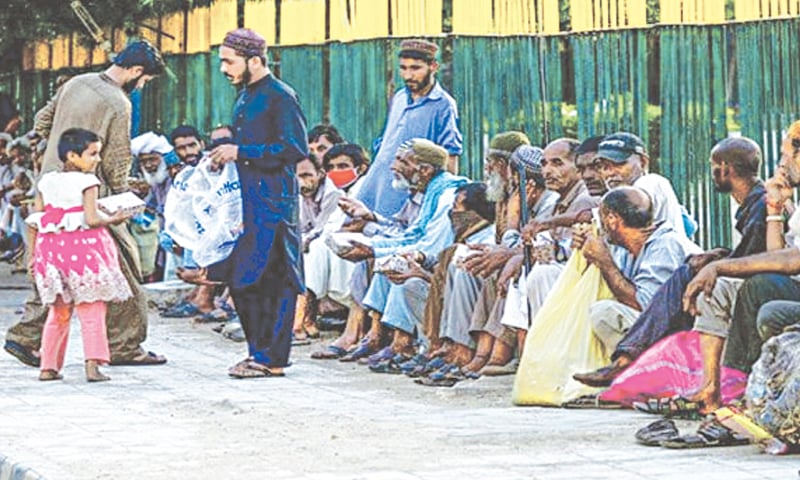By Zile Huma
Published in The News on March 08, 2022
The UN theme for International Women’s Day (IWD) 2022, is ‘Gender equality today for a sustainable tomorrow’. It also supports the main theme of the 66th session on the Commission of the Status of Women “achieving gender equality and the empowerment of all women and girls in the context of climate change, environment, and disaster risk reduction policies and programs.”
This year’s theme aims to emphasise the vulnerabilities of women all over the world due to climate change-induced catastrophes. It also acknowledges the contribution of women climate activists for their efforts to mitigate and adapt to climate change. Two important Sustainable Development Goals (SDGs) – climate action and gender equality – also align with this year’s theme.
According to the UN World Prospects 2019, “The population of females in the world is estimated at 3,904,727,342 or 3,905 million or 3.905 billion, representing 49.58 percent of the world population.” Such statistics show that women and girls – who constitute half the world’s population – are further threatened by gender inequalities in the face of climate disasters. These threats are looming in the form of the disproportionate distribution of all socio-economic opportunities.
Climate disasters negatively impact the health of women as they usually lead to malnutrition and lack of healthcare facilities. There are numerous reasons for the unequal distribution of health facilities for women during climate-led emergencies. Climate calamities destroy infrastructure, which includes hospitals and clinics. Healthcare resources are diverted to meet the requirement of those who are directly affected by the disaster. As a result, the reproductive health issues of women are neglected in low-income countries. Similarly, floods and droughts destroy agricultural land, increasing poverty risks for farmers. Such emergencies cause poverty risks and ignore the nutrition of adolescent girls and pregnant women, which create long-lasting health issues for them.
The trauma of financial problems accelerates the cases of domestic violence and abusive relationship. The Women’s Health Goulburn North East organisation (a specialist women’s health service) reported in the wake of the Black Saturday Bushfires in Victoria in 2009 an increase in the incidence of domestic violence against women during post-disaster recovery. Men usually engaged in physical and mental violence against women to release their frustration and tension.
Climate crises are also a hurdle in promoting gender equality in the education sector. The financial crisis increases the school dropout rate for girls. Underprivileged families, due to their inability to meet their educational expenses, force their girls to shut the doors of education and support the livelihood of the family. A report published by ‘Assembly’ (published by Malala Fund) mentions “Droughts, floods, increased exposure to zoonotic diseases and air pollution are exacerbating the inequalities girls face, further limiting their ability to learn.”
Climate disasters also impact the livelihood of rural women, especially in agricultural countries where women earn through working in fields. During such times, the physical security of women and girls is also undermined. Cases of women abduction and rape increase manifold, which compromises their safety and security.
To mitigate and adapt to climate change, gender equality in climate actions cannot be neglected. Many countries made commitments in COP26 to invest in gender equality projects. The UK announced the allocation of 165 million pounds to foster gender equality in climate change action; Bolivia pledged to reflect gender data in its nationally determined contributions, and Canada pledged that 80 percent of its climate investments over the next five years will target gender equality outcomes. It is important to have credible data of each country, comprising the exact number of women and negative impacts faced by them during several climate crises every year. According to this data, policies and projects can be launched for gender equality.
Governments of low-income countries should fix two percent of national and international scholarships dedicated to girls and women who want to conduct their research in the area of climate change. Education of girls from poor families and the livelihood of women from the agriculture sector should be insured. These governments should ensure the smooth functioning of women-only wards during any natural disasters.
Also, the role and involvement of women and girls in policies related to climate change should be promoted at the national and international levels to make their voices heard. Media outlets should give more space to writings and programmes that highlight the role of gender in climate crises to create mass awareness.
Law-enforcement agencies should be more vigilant during climate calamities to prevent crimes against women and girls. Temporary women’s shelters should be established in disaster-prone areas to protect displaced women and girls. Such shelters should be fully equipped with accurate information, medical and legal facilities. Strict punishment should be implemented in cases of domestic violence or mental abuse. In small villages of developing countries, women community leaders can be designated, according to the indigenous culture, to give climate education to women and girls of that area.





